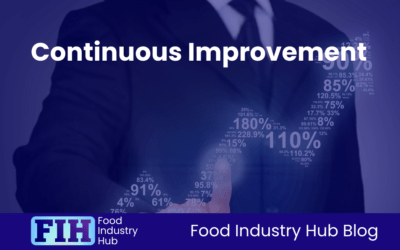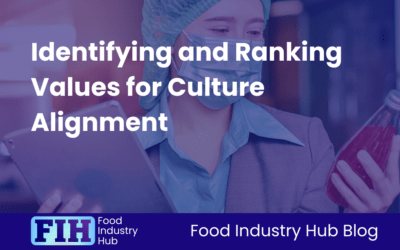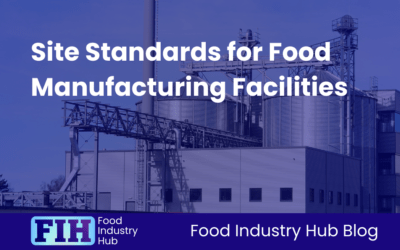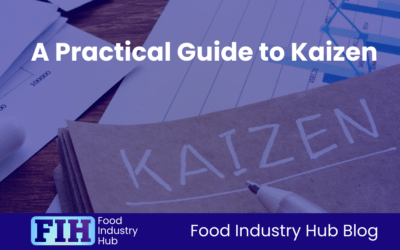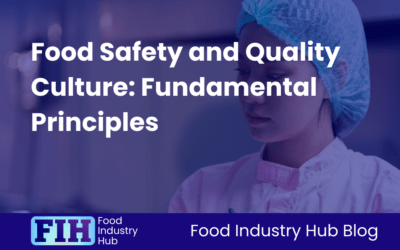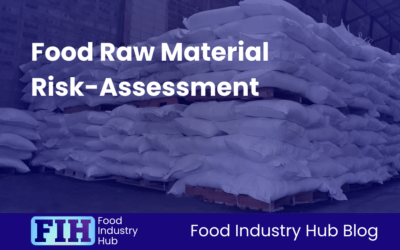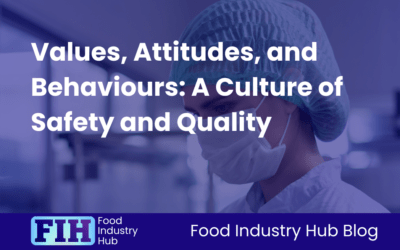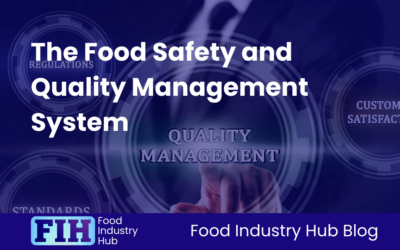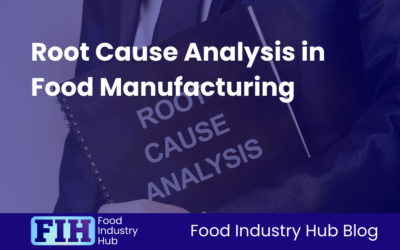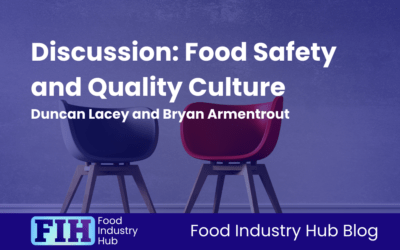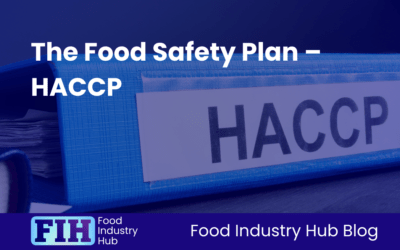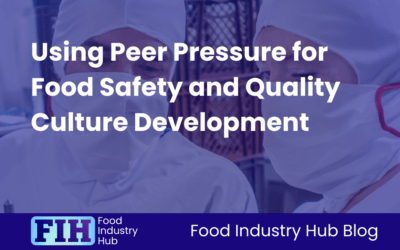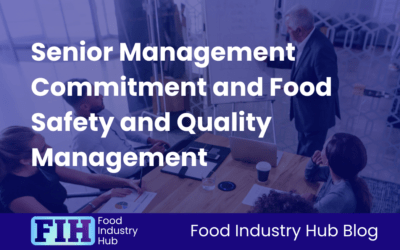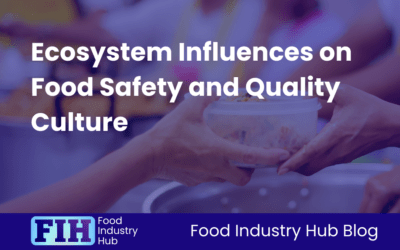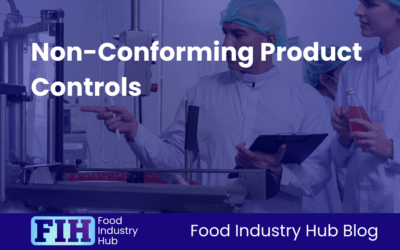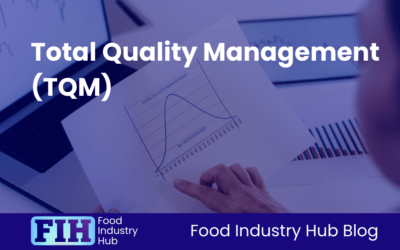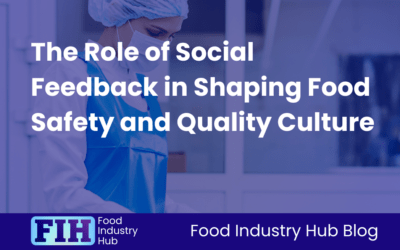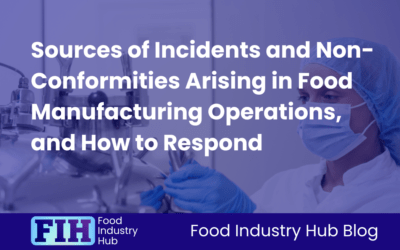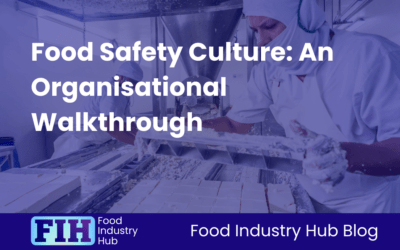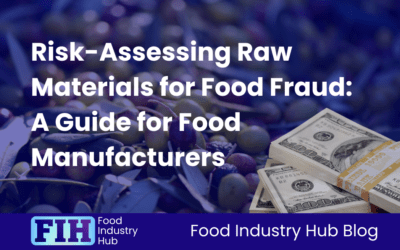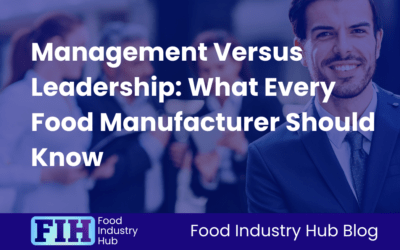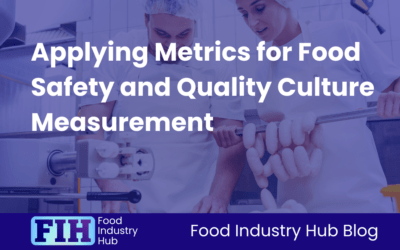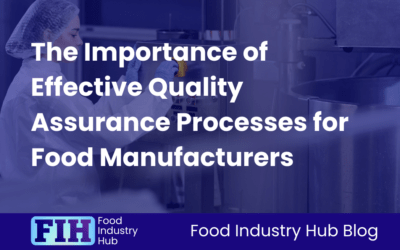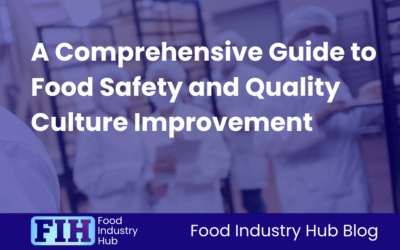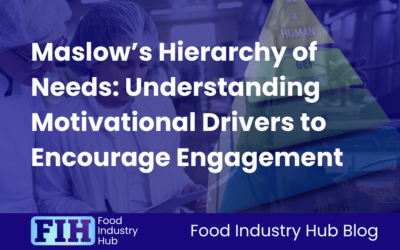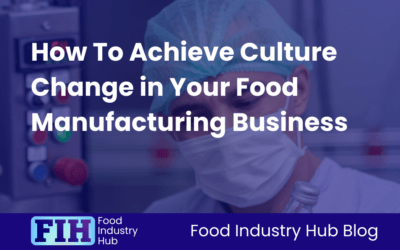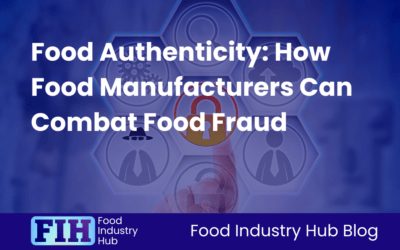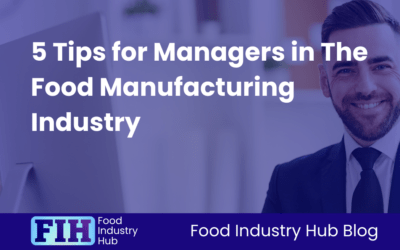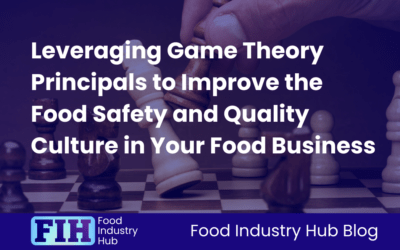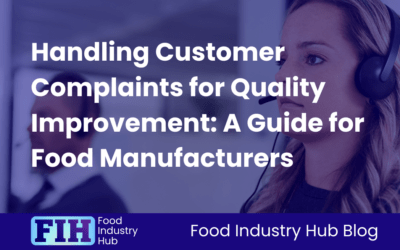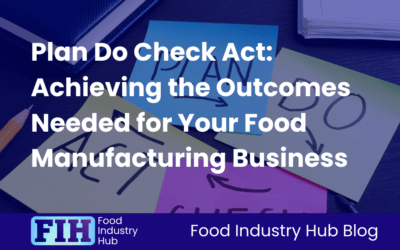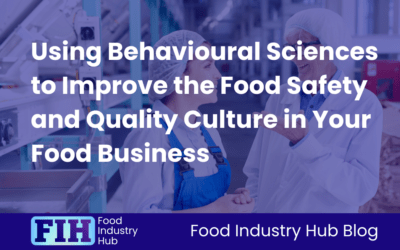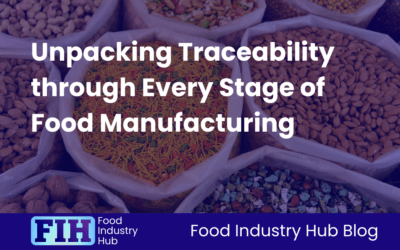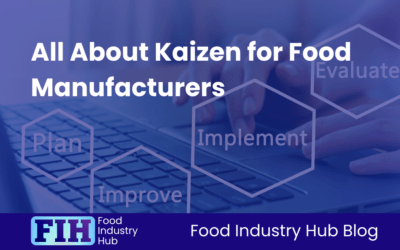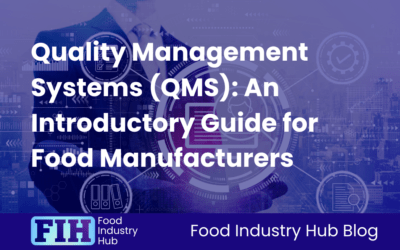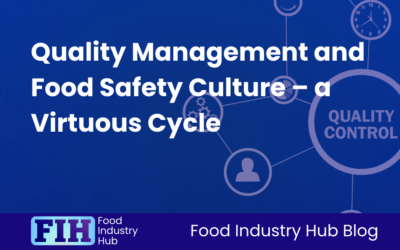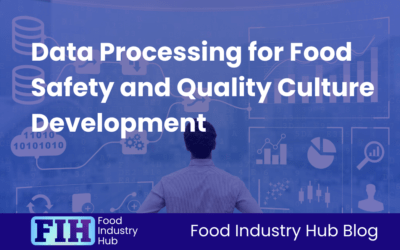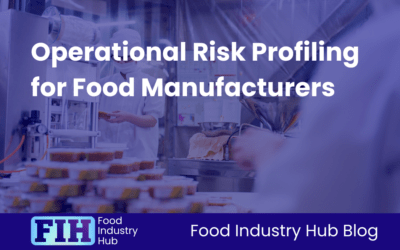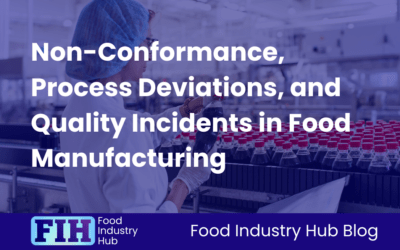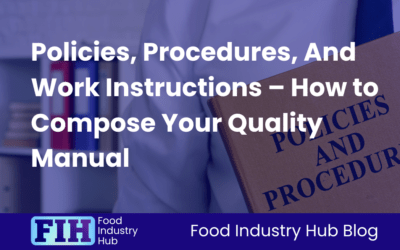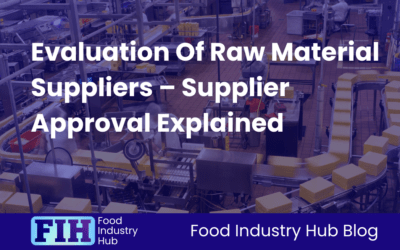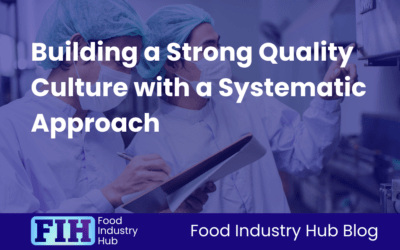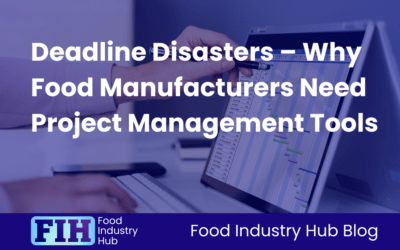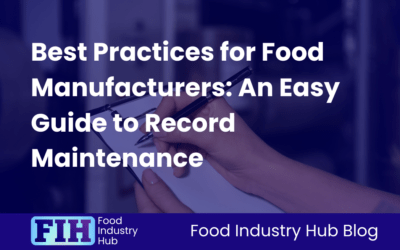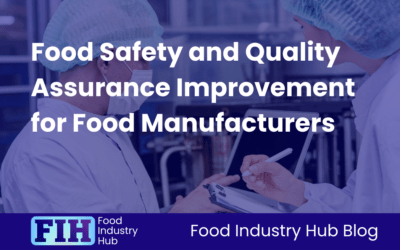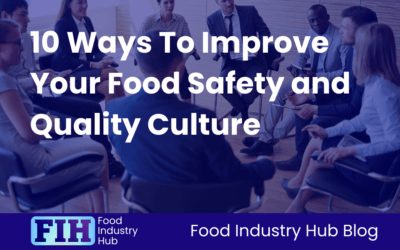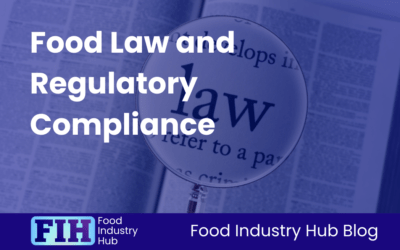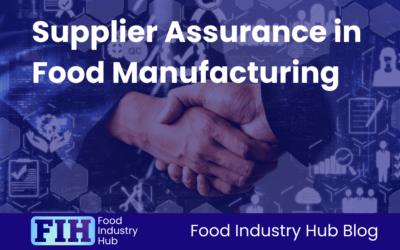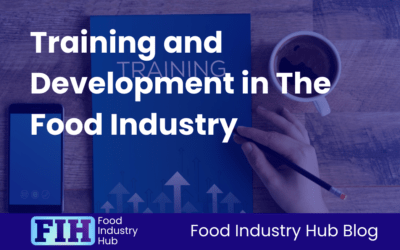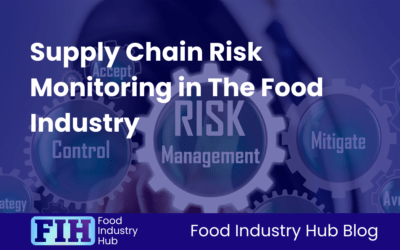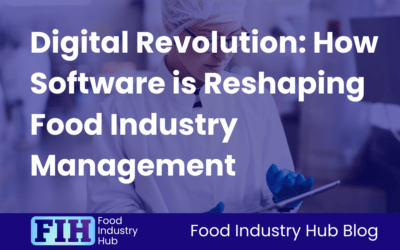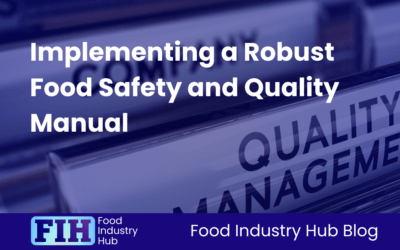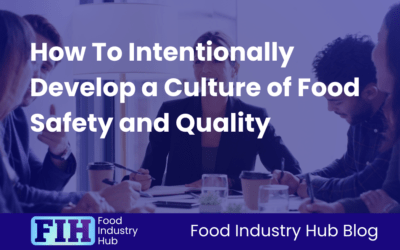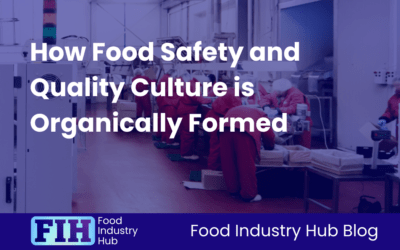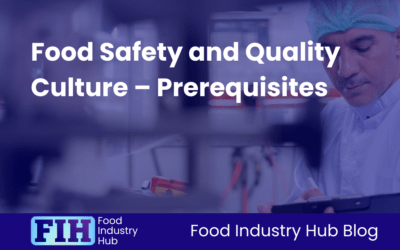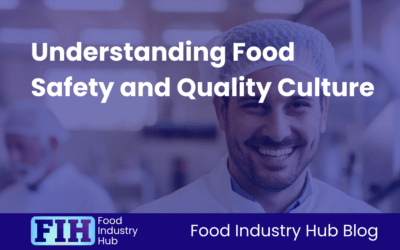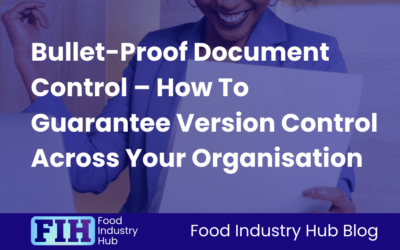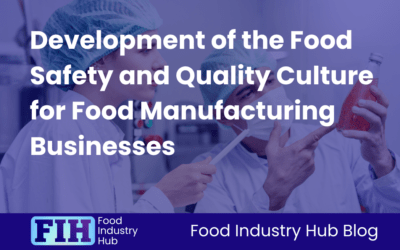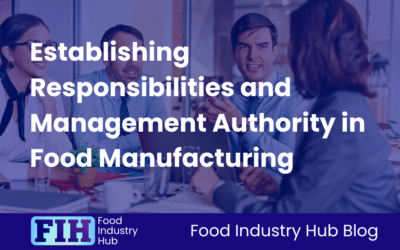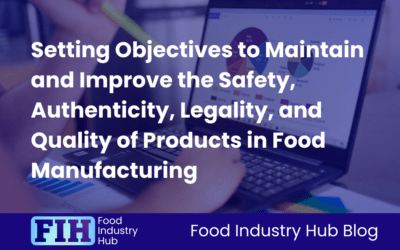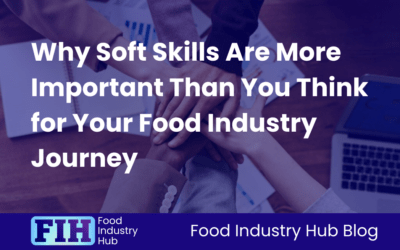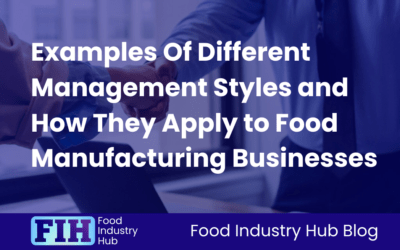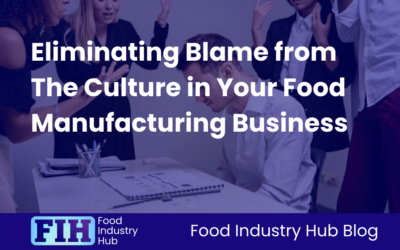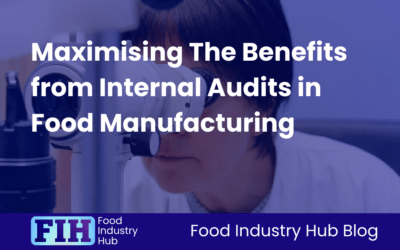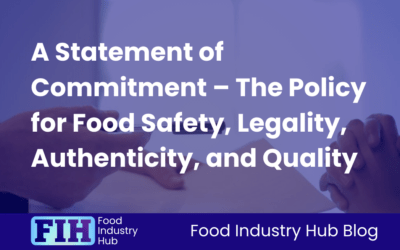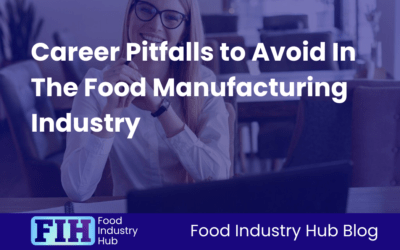IntroductionContinuous improvement represents a foundational approach to operational excellence that has transformed industries worldwide over recent decades. This systematic methodology for enhancing products, processes, and services through incremental advancements...
The Food Industry Hub Blog
Written for Food Industry Professionals
The Food Industry Hub Blog
Written for Food Industry Professionals
Identifying and Ranking Values for Culture Alignment
IntroductionWhat truly defines your company’s culture? While policies, procedures, and training play a role, the foundation of a strong food safety and quality culture lies in the values your business upholds. These values shape the way decisions are made, the...
Site Standards for Food Manufacturing Facilities
IntroductionWhen it comes to food manufacturing, site standards are the foundation of food safety, quality, and legal compliance. Every aspect of your facility—from pest control to storage conditions and transportation—plays a crucial role in protecting products from...
Impactful questions to ask your manager in your next 1:1
IntroductionYour one-on-one meetings with your manager are more than just a routine check-in—they’re an opportunity to unlock personal growth, enhance team dynamics, and position yourself for career advancement. By asking the right questions, you can gain valuable...
A Practical Guide to Kaizen
IntroductionIn food manufacturing, finding ways to improve efficiency, maintain quality, and reduce waste is critical to staying competitive. This is where Kaizen, a Japanese philosophy of continuous improvement, offers a compelling solution. By focusing on small,...
Food Safety and Quality Culture: Fundamental Principles
IntroductionCreating a culture of food safety and quality is essential for any food manufacturing business aiming to maintain high standards, protect consumer health, and uphold its reputation. It involves more than just meeting regulatory requirements; it requires a...
Sign-up for the Food Industry Hub Mail Service
We regularly produce new content for food industry professionals, and the Food Industry Hub Mail Service is the best way to stay up to date with the latest additions.
Signup today to be added to the Food Industry Hub mailing list.
Food Raw Material Risk-Assessment
IntroductionIn food manufacturing, raw materials form the foundation of your finished products, making their safety, quality, and compliance critical to your operations. A raw material risk assessment is a proactive tool that enables you to identify, evaluate, and...
Applying The 7 Cs of Resilience to Your Professional Development
IntroductionIn the food manufacturing industry, resilience is a cornerstone of professional success, given the complexities of quality control, regulatory standards, and supply chain demands. Dr. Kenneth Ginsburg’s 7 Cs of Resilience framework offers valuable...
Values-Driven Leadership in Food Manufacturing
IntroductionMaintaining a strong commitment to food safety and quality has become more important than ever. As a senior leader, you have the unique ability to shape the culture of your organisation and influence the values that guide your team. When you prioritise...
Values, Attitudes, and Behaviours: A Culture of Safety and Quality
IntroductionThe culture of safety and quality within your organisation is not just dictated by policies and procedures; it's shaped by the values you espouse, the attitudes you cultivate, and the behaviours you reward. So how do you ensure that the values you've put...
The Food Safety and Quality Management System
IntroductionYou're probably aware that ensuring food safety is a complex process. It's not just about selecting the freshest ingredients; it's also about implementing a robust Food Safety and Quality Management System. This system is a comprehensive guide, detailing...
How to Build a Successful Career in the Food Manufacturing Industry
IntroductionIn the food manufacturing industry, you're not just creating products, you're part of an essential process that feeds the world. How do you navigate this complex field to not only survive, but thrive? It's not just about knowing your way around a...
Root Cause Analysis in Food Manufacturing
IntroductionImagine you're a food manufacturer facing recurring product defects. You're firefighting the symptoms, but what if you could tackle the root of the problem instead? That's where Root Cause Analysis (RCA) comes into play. It's a proactive method to...
Discussion: Food Safety and Quality Culture
IntroductionOn Friday 30th August 2024, Food Industry Hub’s Duncan Lacey joined Bryan Armentrout on The Food Leadership Group Food Safety Chat Live! to discuss food safety and quality culture. You can watch a recording of the chat here, and the transcript is shown...
The Food Safety Plan – HACCP
IntroductionHave you ever considered how crucial the Food Safety Plan - HACCP is in preventing foodborne illnesses? By implementing a systematic approach that identifies and controls food safety hazards, it's possible to significantly reduce the risks of biological,...
Growth Mindset for Career Success
IntroductionIn the competitive world of food manufacturing, it's not enough just to do your job well - you need to constantly evolve and adapt. By adopting a growth mindset, you'll see challenges not as setbacks, but as opportunities for growth and skill development....
Six Sigma for Food Manufacturers
IntroductionAs a food manufacturer, you're likely always on the hunt for ways to enhance your production processes. Have you ever considered the Six Sigma methodology? This technique, focused on reducing defects and increasing efficiency, could drastically transform...
Using Peer Pressure for Food Safety and Quality Culture Development
IntroductionConsider the power of positive peer pressure in shaping the culture of food safety and quality in your organisation. You've seen how it can sway behaviours in other aspects, but have you ever considered harnessing it to encourage adherence to food safety...
Senior Management Commitment and Food Safety and Quality Management
IntroductionConsider the role of senior management in your organisation's food safety and quality management. Senior management commitment isn't just a formality; it's the backbone of establishing and maintaining a culture of accountability and excellence. They're not...
Vocational Skills Needed for a Career in Food Manufacturing
IntroductionAre you ready to take your career in food manufacturing to the next level? In today's competitive industry, having the right skills is essential for success. From ensuring food safety and quality control to navigating complex regulations, professionals in...
Management Concepts & How They Apply in Food Manufacturing
IntroductionMastering a range of management concepts and approaches is essential for operational efficiency and sustained growth. When you consider the intricate web of factors influencing the food industry, from fluctuating consumer demands to evolving regulatory...
Ecosystem Influences on Food Safety and Quality Culture
IntroductionIn a food manufacturing business, the ecosystem surrounding food safety and quality is a multifaceted web of influences. From suppliers ensuring top-notch materials to consumers demanding transparency, each stakeholder adds a crucial layer to the culture....
Non-Conforming Product Controls
IntroductionMaintaining strict controls over non-conforming products is crucial for upholding quality standards. Imagine the impact a single oversight could have on your brand's reputation and customer trust. By implementing robust measures to identify, manage, and...
How to Move Your Career Forward in Food Manufacturing
IntroductionTo progress in the food manufacturing industry, you have to be proactive in seeking growth opportunities, building a strong network, and showcasing your reliability through extra responsibilities. By focusing on continuous improvement and positioning...
Total Quality Management (TQM)
IntroductionImplementing TQM in your food manufacturing processes can lead to a culture of continuous improvement, where every employee is committed to delivering products that meet or exceed customer expectations. By focusing on customer satisfaction, TQM helps food...
The Role of Feedback in Food Safety and Quality Culture
IntroductionIn the complex landscape of food manufacturing, the influence of social feedback on shaping food safety and quality culture cannot be overstated. Your organisation's success in maintaining high standards hinges on how effectively social interactions...
Sources of Incidents and Non-Conformities Arising in Food Manufacturing Operations, and How to Respond
IntroductionWhen looking at the sources of incidents and non-conformities in food manufacturing operations, it's crucial to understand the multifaceted nature of these occurrences - and how the source of the non-conformity can indicate underlying weaknesses in the...
How Self-Discipline Can Determine Your Career Success
IntroductionIn your professional journey, self-discipline holds the key to unlocking your full potential and paving the way for career triumphs. It forms the bedrock of your success by guiding your actions, fortifying your resolve, and honing your focus in the face of...
Management and Leadership: Approaches and Techniques
IntroductionManagement and leadership are expansive topics. In this post, will explore a range of approaches and techniques that you might find helpful as a manager in the food industry. The intention is to introduce you to a variety of management strategies, without...
Food Safety Culture: An Organisational Walkthrough
IntroductionFood safety and quality culture is not separate to organisational systems or business structure. In reality, organisational culture is a characteristic -and expression- of the organisation, and manifests throughout all levels. In this post, we'll explore...
Risk-Assessing Raw Materials for Food Fraud
IntroductionAre you looking for a comprehensive guide to conducting a simple and effective vulnerability assessment for raw materials? If so, you’ve come to the right place! This post will provide an overview of why it is important to conduct a vulnerability...
Aligning Your Individual Efforts with Organisational Objectives
IntroductionDelivering meaningful impact for your business is a fundamental lever for career success. Demonstrating competence and effectiveness in your role will underpin your professional credibility, and is essential for upward movement. You understand the...
Management Versus Leadership: What Every Food Manufacturer Should Know
IntroductionWhat exactly sets management apart from leadership? How can you leverage both to steer your organisation towards growth and innovation? In this post, we’ll look at the characteristics of management versus leadership, and how the two skills compliment each...
Applying Metrics for Food Safety and Quality Culture Measurement
IntroductionCompliance depends on objective evidence. Without objective evidence, it is impossible to demonstrate compliance or non-compliance at audit. The notion of compliance is only meaningful if it can be challenged and measured. Today, various compliance...
The Importance of Effective Quality Assurance Processes for Food Manufacturers
IntroductionDo you ever think about how likely consumers are to switch brands if they experienced a quality or safety issue with a food product? It’s commercially essential for food manufacturers to prioritise brand protection and customer satisfaction. Effective...
How to Stay Motivated and Enthusiastic: Advice for Professionals in the Food Industry
IntroductionThey say, 'Rome wasn't built in a day,' and the same can be said for maintaining motivation and enthusiasm in your food manufacturing career. As a professional in this industry, you understand the importance of staying motivated to meet deadlines, exceed...
How To Make Yourself More Approachable as a Manager in The Food Industry
IntroductionDid you know employees feel more engaged and productive when they have approachable managers? As a manager in the food manufacturing industry, it is crucial for you to establish a strong connection with your team in order to foster a positive work...
A Comprehensive Guide to Food Safety and Quality Culture Improvement
IntroductionIn this post, we’ll discuss the nature of food safety and quality culture and how it’s defined. We’ll touch on measurement/evaluation and how best to assess your food safety and quality culture. We’ll also go on to explore some of the ways you can improve...
Threat Mitigation For Your QMS
IntroductionImagine a scenario where a food manufacturer's reputation is tarnished due to a product tampering incident that could have been prevented. How can you safeguard your company from such threats? By implementing stringent threat mitigation strategies, you can...
How to Build Strong Relationships With Your Peers and Professional Network Within the Food Industry
IntroductionIn the world of food manufacturing, fostering robust connections with your peers and professional network is paramount to success. It's no secret that the industry thrives on collaborative relationships, so this is a massively important aspect of career...
Maslow’s Hierarchy of Needs: Understanding Motivational Drivers to Encourage Engagement
IntroductionMotivation is a multifaceted and fascinating concept that drives human behaviour, but have you ever wondered what truly motivates individuals in the workplace? Enter Maslow's Hierarchy of Needs, a renowned framework that explores the various levels of...
How To Achieve Culture Change in Your Food Manufacturing Business
IntroductionSo, you've noticed that your food manufacturing business could use a culture revamp. But how do you actually make that happen? It's not just about setting goals and hoping for the best. There's a strategic process involved that requires commitment and...
Food Authenticity: How Food Manufacturers Can Combat Food Fraud
IntroductionIn a world where food fraud has become increasingly prevalent, the integrity of our food supply chain hangs in the balance. As a food manufacturer, you hold the power to combat this deception and restore trust in the products you produce. Food authenticity...
Improving Your Chances of Promotion: How to Get Ahead In The Food Manufacturing Industry
IntroductionBy a stroke of luck, you find yourself working in the food manufacturing industry, a field with ample opportunities for growth and advancement. But how do you ensure that you stand out among the rest and secure that much-desired promotion? Well, buckle up,...
5 Tips for Managers in The Food Manufacturing Industry
IntroductionIn this post, we will explore five tips to help bolster your managerial outlook. From prioritising food safety practices to staying updated with industry regulations, these tips will not only help you maintain a smooth operation but also ensure the success...
Leveraging Game Theory Principals to Improve the Food Safety and Quality Culture in Your Food Business
IntroductionIn food manufacturing, developing and maintaining mature culture of food safety and quality culture is of the utmost importance. That's where leveraging game theory principles comes into play. Game theory addresses interactions between individuals and/or...
Handling Customer Complaints for Quality Improvement: A Guide for Food Manufacturers
IntroductionAs a food manufacturer, you understand the importance of delivering high-quality products to your customers. However, no matter how meticulous your processes are, there will inevitably be instances where complaints arise. In this post, we will explore the...
Fulfilment and Reward: The Benefits of a Career in The Food Manufacturing Industry
IntroductionStep into a world where the flavours of success blend seamlessly with the satisfaction of making a difference. In the fast-paced world of food manufacturing, you can find a fulfilling career that not only satisfies your ambitions but also delivers...
Plan Do Check Act: Achieving the Outcomes Needed for Your Food Manufacturing Business
IntroductionWe all have targets and objectives to meet, but sometimes it can seem challenging to achieve the outcomes needed. This is where the PDCA (Plan Do Check Act) methodology comes into play. It offers a systematic approach to achieving the management results...
Using Behavioural Sciences to Improve the Food Safety and Quality Culture in Your Food Business
IntroductionIn thinking about the food safety and quality culture within your organisation, have you ever considered the impact of behavioural sciences? Imagine the potential of tapping into human behaviour patterns to create a workplace environment that naturally...
Unpacking Traceability through Every Stage of Food Manufacturing
IntroductionHaving full traceability over food manufacturing and production can be a complex process. Every stage needs special consideration to ensure accurate record-keeping, help manage incidents and understand where things come from. This post looks at...
How To Identify and Develop the Skills You Need for The Career You Want in The Food Industry
IntroductionAre you a passionate professional seeking to pursue a promising career in the food manufacturing industry? Well, buckle up for a journey of self-discovery and skill development! In this post, we will explore the art of identifying and developing the...
All About Kaizen for Food Manufacturers
IntroductionFood manufacturers face increasing pressure to improve efficiency and quality while reducing costs. In today's competitive market, finding ways to optimise processes and enhance productivity is crucial. That's where Kaizen comes in. This continuous...
Quality Management Systems (QMS): An Introductory Guide for Food Manufacturers
IntroductionThe quality management system (QMS) is an extensive management structure of key importance to food manufacturing, but is often regarded as being highly technical and inaccessible. In this explanatory guide, we will explore the key components of the QMS and...
Technical Skills Vital for Career Success in Food Manufacturing
IntroductionIn the food manufacturing industry, your grasp of essential technical skills can mean the difference between stagnation and career advancement. Your proficiency in areas such as HACCP principles, record-keeping, fault resolution, and GMP implementation is...
Quality Management and Food Safety Culture – a Virtuous Cycle
IntroductionFood safety and quality are of paramount importance for food manufacturers, as they directly impact the health and well-being of customers, as well as the reputation and success of the company. Implementing a robust food safety and quality management...
Data Processing for Food Safety and Quality Culture Development
IntroductionThere’s a lot about culture that seems very subjective and removed from objective data, but data interactions can be among the most powerful tools organisations have when making strategic interventions to their food safety and quality culture. This post...
Operational Risk Profiling for Food Manufacturers
IntroductionAll businesses are subject to risk, with categories of risk including competition, reputational risks, financial, economic, and political hazards. The scope of this post is limited to food safety, quality, legality, and authenticity risks, and we’ll look...
Non-Conformance, Process Deviations, and Quality Incidents in Food Manufacturing
IntroductionFor food manufacturers, understanding and properly addressing non-conformance, process deviations, and quality incidents is fundamental to continuous improvement and risk mitigation. In this blog post, we will take a comprehensive look at these quality...
Policies, Procedures, And Work Instructions – How to Compose Your Quality Manual
IntroductionPolicies, procedures, and work instructions are all important management documents that are used in food manufacturing to ensure that the production process is safe, efficient, and compliant with relevant regulations. In this post, we will define each type...
Evaluation Of Raw Material Suppliers – Supplier Approval Explained
IntroductionSupplier assurance processes form an important area of diligence for food manufacturers. The quality and safety or raw materials received from suppliers has a direct impact on the products manufactured from them, so evaluation of suppliers has a marked...
Building a Strong Quality Culture with a Systematic Approach
IntroductionMany compliance standards now include requirements for food businesses to demonstrate the development and improvement of their food safety and quality culture. This post explores systemic influences on culture and offers suggestions for how to promote your...
Deadline Disasters – Why Food Manufacturers Need Project Management Tools
IntroductionReceiving task requests from a variety of sources can make it difficult to manage individual workloads because it can lead to confusion over which tasks are a priority, duplication of effort, and difficulty in tracking progress. This can make it...
Best Practices for Food Manufacturers: An Easy Guide to Record Maintenance
IntroductionMaintaining good records is one of the most important practices for food manufacturing businesses. It is essential to have accurate, legible, and properly formatted records that are in good condition and preserved from loss or damage. In this post, we will...
Food Safety and Quality Assurance Improvement for Food Manufacturers
IntroductionEvery food manufacturer intends to implement the best possible food safety and quality assurance systems and adopt a stance of continuous improvement. The particular ways you achieve that will depend on a massive range of variables – depending on your...
Taking Ownership of Your Own Advancement for a Successful Career in The Food Industry
IntroductionThe food manufacturing industry can offer a really rewarding career for professionals who choose to pursue it. There is a lot about actively managing your career that can be easy to overlook. Many people assume that spending a series of years working in a...
10 Ways To Improve Your Food Safety and Quality Culture
IntroductionFood safety and quality culture can be a difficult thing to address because of the intangible nature of the topic. In this post, we offer actionable suggestions for initiatives that you can use to develop a culture of food safety and quality.This post is...
Food Law and Regulatory Compliance
IntroductionEvery food manufacturer has an obligation to maintain an awareness of – and comply with – applicable regulations. To support, we’ve brought together a range of informational resources which either facilitate regulatory awareness or can be used in support...
Supplier Assurance in Food Manufacturing
IntroductionSupplier assurance updates can fairly time-consuming, but maintaining proper oversight of your supply chain is a key mitigation process against raw material processing risks – so well worth the effort. We’ve signposted to a collection of resources that...
Food Authenticity and Mitigating Food Fraud Risks
IntroductionSubstitution, adulteration, and fraud present a uniquely difficult set of authenticity risks for food manufacturers to manage for. Intentional malicious action is inherently challenging to detect and mitigate, because the malicious actor(s) make deliberate...
Training and Development in The Food Industry
IntroductionAs a group of professionals, people in the food industry tend to be as passionate about building their professional expertise as they are about the profession itself. Every time opportunities for professional development are made available, people are...
Supply Chain Risk Monitoring in The Food Industry
IntroductionSupply chain risk monitoring is critical to awareness and control of raw material and supplier risks – which can directly affect the risk profile of your finished products. The purpose of this post is to bring together a range of informational resources,...
Digital Revolution: How Software is Reshaping Food Industry Management
IntroductionFood manufacturing software can really transform efficiency across an organisation. Digital systems bring connectivity for communication and visibility in ways that can’t be achieved using offline systems. In this post, we’ll explore some of the ways...
Implementing a Robust Food Safety and Quality Manual
The food safety and quality manual represents the documented system of management for a food manufacturer. It is the framework of management that governs all operational processes. In this post, we’ll explore the composition of a food safety and quality manual and how...
How To Intentionally Develop a Culture of Food Safety and Quality
IntroductionThis post is intended to provide a framework that you can use to assess and improve your food safety and quality culture. We’ll explore how to align values and encourage their adoption. We’ll also discuss ways to address conflicts for mutual benefit. All...
How Food Safety and Quality Culture is Organically Formed
IntroductionEvery organisation has a food safety and quality culture, whether it has been intentionally shaped or allowed to develop organically. It’s the nature of the culture, rather than its existence, in question here. A fragmented or conflicted food safety and...
Food Safety and Quality Culture – Prerequisites
IntroductionFood safety and quality culture can seem like a challenging subject. There’s something intangible about it that can make it difficult to identify how to approach - let alone improve – the culture of safety and quality. There are a few conditions that need...
Understanding Food Safety and Quality Culture
IntroductionFood safety and quality culture is an interesting subject, and distinct from many operational concerns in that it directly addresses psychological topics – which is unfamiliar terrain for many in the food industry. In this post, we’ll look at...
Bullet-Proof Document Control – How To Guarantee Version Control Across Your Organisation
This post will address the processes and considerations surrounding version control of documents, management systems, and tips for how to get the most out of your document control system. You’ll learn about what document control is, and how it can be best applied to...
Development of the Food Safety and Quality Culture for Food Manufacturing Businesses
Food safety and quality culture is among the most important objectives for food manufacturing businesses to focus on. To put the significance of culture into perspective, you can think of it as an invisible management system that sits alongside your documented...
Establishing Responsibilities and Management Authority in Food Manufacturing
Structured management is essential in food manufacturing. Establishing responsibilities and management authority is an integral part of creating a successful organisational structure. It ensures that decision-making power is distributed in an effective manner, while...
Professional Development for Food Industry Professionals
Food industry professionals are constantly looking for ways to improve their knowledge and develop their skills. Professional development is an important part of staying ahead in this competitive field, as it can help food industry professionals stay up to date with...
How to Proactively Demonstrate Senior Management Commitment
Food manufacturing is an ever-changing industry that requires strong commitment and effort from senior management to ensure high quality, safe products are produced. Quality, safety, authenticity and compliance are key factors for success in this sector. To be...
Setting Objectives to Maintain and Improve the Safety, Authenticity, Legality, and Quality of Products in Food Manufacturing
IntroductionThe highest responsibility of any food manufacturer is to uphold the safety, authenticity, legality, and quality of its products. This is fundamental to fulfilling the expectations of customers and consumers. To this end, food manufacturers should set...
Why Soft Skills Are More Important Than You Think for Your Food Industry Journey
IntroductionIn the demanding world of food manufacturing, technical skills can only take you so far. Take, for instance, a skilled food scientist who struggles to communicate effectively with their team. While technical competency may secure you a job, it's the soft...
Examples Of Different Management Styles and How They Apply to Food Manufacturing Businesses
IntroductionThe management style of an organisation can have a huge impact on its success. In the food manufacturing industry, there are various different management styles that can be used depending on the type and size of the business. These styles may include...
An Introduction to Food Specifications
Specifications serve a lot of important purposes in food manufacturing. Most obviously, they’re used to establish quality expectations for suppliers and customers exchanging food products – but more broadly, specifications can be a vehicle for transmitting information...
Eliminating Blame from The Culture in Your Food Manufacturing Business
IntroductionEliminating blame from the culture of your food manufacturing business can be challenging to achieve. But having a constructive approach to reporting and analysing mistakes can lead to more positive outcomes for everyone involved. This post will discuss...
How To Get the Most Out of Your Career in The Food Industry
A career in the food industry can be a rewarding and exciting experience with potential for substantial earning and progression. To ensure that you get the most out of your career, it is important to set goals, create a strategy and maintain an interest in your chosen...
Making Use of Persuasion Techniques for Management Success
Persuasion is an invaluable tool for a successful manager. Through the use of persuasive techniques, effective managers can generate team collaboration, engagement, and buy-in in order to achieve success. In this article we will examine how persuasion, defined as...
Everything You Need to Know About Record Completion and Maintenance
In the food industry, record completion and maintenance is an essential part of compliance and diligence. Records provide a valuable defence of evidence for companies in the event of a legal dispute. Aside from providing evidence of diligence and process control,...
Begginer’s Guide to Management in The Food Industry
The food manufacturing industry can be a challenging landscape for first-time managers. Juggling the demands of personnel management, production processes, and tight deadlines is enough to overwhelm even experienced professionals. Thankfully, there are key steps that...
Maximising The Benefits from Internal Audits in Food Manufacturing
Internal audits in food manufacturing are a valuable tool when it comes to identifying areas of improvement and increasing efficiency. They can help to identify weaknesses, strengths, and discrepancies in compliance, while also providing an opportunity to discover...
A Statement of Commitment – The Policy for Food Safety, Legality, Authenticity, and Quality
Food safety, legality, authenticity, and quality are of paramount importance to any food business. Each of these has a direct impact on business-critical concerns, ranging from brand reputation, consumer safety, and legal compliance. To demonstrate the commitment of...
Exploring Options – Different Types of Opportunities in The Food Industry
The food manufacturing industry is one of the most diverse and vibrant sectors in the world. There are numerous opportunities available to those looking to enter into or develop a career in this field, ranging from full time employment to interim, consultancy,...
Career Pitfalls to Avoid In The Food Manufacturing Industry
For professionals in the food manufacturing industry, there are many career opportunities and successes to be had, but avoiding certain pitfalls is key to long-term success. Knowing which mistakes to avoid can help professionals navigate their careers and build a...

